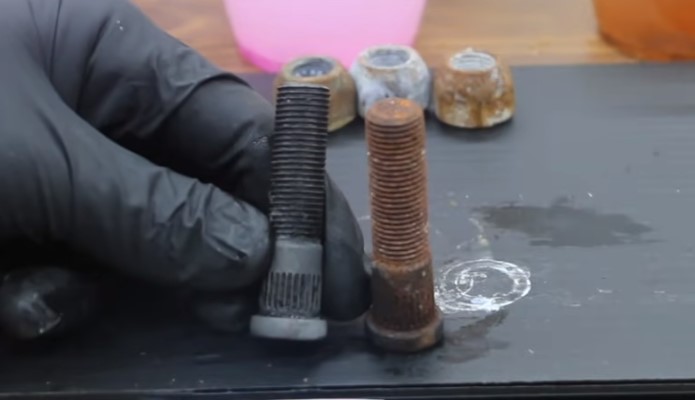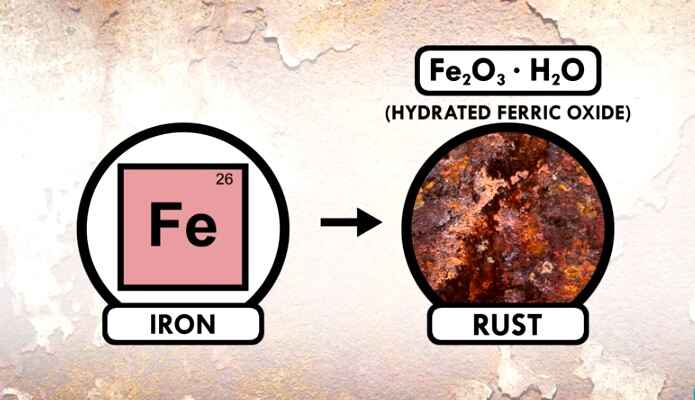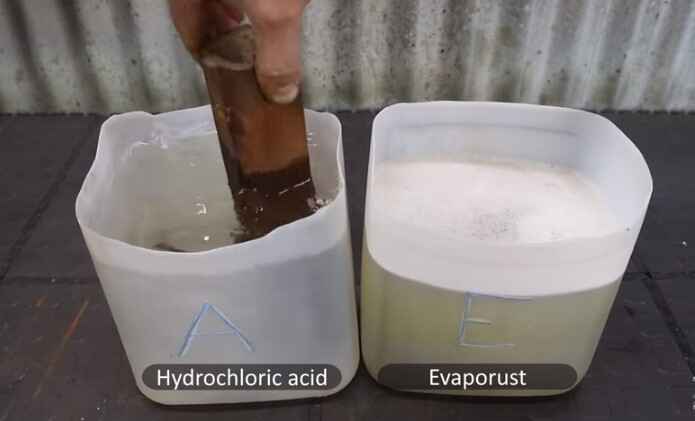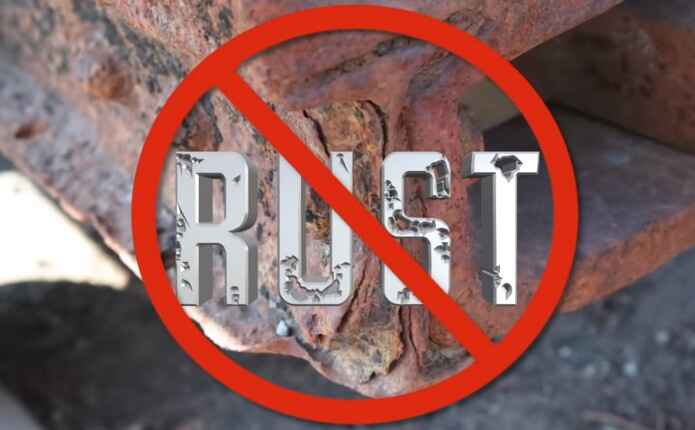Rust removal tools include wire brushes, sandpaper, rust converters, and chemical rust removers. Wire brushes scrub away surface rust, sandpaper smooths surfaces, rust converters transform rust into a paintable surface, and chemical removers dissolve rust. Choose the tool based on the severity of rust and the material involved.
Unveiling the Secrets of Rust Removal: In the battle against the relentless enemy of metal surfaces—rust, arming yourself with the right tools is crucial. In this blog post, we explore the world of rust removal tools, from traditional options to cutting-edge innovations. Discover the power of technology and craftsmanship converging to combat corrosion, as we guide you through a curated selection of tools designed to restore metal to its former glory. Say goodbye to rust-related woes and hello to a rejuvenated, resilient finish!

Rust is a common problem affecting metal objects, and it can be frustrating to deal with. As someone who has dealt with rust several times, it is important to understand what rust is and how it forms before attempting to remove it.
Rust is the result of a chemical reaction between iron, oxygen, and water. When these three elements come into contact, oxidation occurs, which causes the iron to break down and form rust. This is why rust is often referred to as "iron oxide."
Several factors can accelerate the formation of rust, including exposure to saltwater, acidic substances, and high humidity. Additionally, metal objects not properly protected with a coating or paint are more susceptible to rust.
It is important to note that rust not only looks unsightly, but it can also weaken the structural integrity of metal objects. This is why it is crucial to address rust as soon as it is spotted.
There are several methods for removing rust, including chemical rust removers, sandblasting, and mechanical tools such as wire brushes or sandpaper. The method you choose will depend on the severity of the rust and the type of metal object you are working with.
In conclusion, understanding what rust is and how it forms is crucial when dealing with rust removal. By taking preventative measures to protect metal objects and addressing rust as soon as it is spotted, you can ensure that your metal objects remain in good condition for years.

Types of Rust Removal Tools
Chemical Rust Removers
Chemical rust removers are solutions that dissolve rust from metal surfaces. They are made up of acids or other chemicals that react with the rust to break it down. Some common chemical rust removers include phosphoric acid, hydrochloric acid, and citric acid. These solutions are often applied to the rusted surface using a brush or spray bottle and left to sit before being wiped away with a cloth.

Mechanical Rust Removers
Mechanical rust removers are tools that physically remove rust from a metal surface. They include wire brushes, sandpaper, and grinding wheels. These tools are often used with chemical rust removers to remove any remaining rust after applying the chemical treatment. Wire brushes are particularly effective at removing rust from hard-to-reach areas and corners.
Natural Rust Removers
Natural rust removers are solutions made up of natural ingredients used to dissolve rust from metal surfaces. They are often made up of vinegar, lemon juice, or baking soda. These solutions are applied to the rusted surface using a brush or spray bottle and left to sit for some time before being wiped away with a cloth. Natural rust removers are a great alternative to chemical ones for a more eco-friendly solution.
In summary, there are three main types of rust removal tools: chemical rust removers, mechanical rust removers, and natural rust removers. Each type has its unique benefits and drawbacks, and the best choice will depend on the specific situation and preferences of the user.
Comparing Rust Removal Tools
Several tools on the market can help when it comes to removing rust. In this section, I will compare the effectiveness, safety, and cost of some of the most popular rust removal tools.
Effectiveness
The effectiveness of a rust removal tool is the most important factor to consider. After all, you want to ensure that the tool you choose will remove the rust from your metal surfaces.
Here are some of the most effective rust removal tools:
- Wire brush: This classic rust removal tool can remove rust from various surfaces. It is particularly effective on large, flat surfaces.
- Sandpaper: Sandpaper is another effective rust removal tool. It is best used on small surfaces or hard-to-reach areas.
- Chemical rust removers: These are powerful solutions that can dissolve rust. They are extremely effective but can also be dangerous if not used properly.
Safety
Safety is another important factor to consider when choosing a rust removal tool. You want to ensure that the tool you choose is safe to use and won't cause any harm to you or your surroundings.
Here are some of the safest rust removal tools:
- Wire brush: This is a safe tool if you wear gloves and eye protection.
- Sandpaper: Sandpaper is also safe to use, as long as you wear gloves and a mask to protect your lungs from dust.
- Rust converter: Rust converters are safe to use, as they do not contain any harmful chemicals.
Cost
Finally, cost is an important factor when choosing a rust removal tool. You want to get an effective, safe, and affordable tool.
Here are some of the most cost-effective rust removal tools:
- Wire brush: Wire brushes are inexpensive and can be found at most hardware stores.
- Sandpaper: Sandpaper is also very affordable and can be found at most hardware stores.
- Vinegar: Vinegar is a cheap and effective rust remover in most grocery stores.
In conclusion, several rust removal tools on the market are effective, safe, and affordable. When choosing a tool, it's important to consider the effectiveness, safety, and cost to ensure you get the best tool for your needs.
Using Rust Removal Tools
Preparation
Before using any rust removal tool, it's important to prepare the surface properly. Clean the surface with soap and water to remove dirt or debris. Then, use a wire brush or sandpaper to remove any loose rust or paint. If the rust is particularly stubborn, you may need a chemical rust remover or converter.
It's also important to protect yourself during the preparation process. Wear gloves, safety glasses, and a face mask to avoid inhaling any dust or fumes.
Application
Several types of rust removal tools are available, each with its own application method. Here are a few common types:
- Wire brush: Use a wire brush to scrub away surface rust. This method is best for small areas or inaccessible areas with other tools.
- Sandpaper: Sandpaper can remove rust and paint from larger areas. Start with a coarse grit and work up to a finer grit for a smooth finish.
- Chemical rust remover: Apply the rust remover to the surface and let it sit for the recommended time. Then, scrub away the rust and rinse the surface thoroughly.
- Rust converter: Rust converters chemically change rust into a stable compound that can be painted over. Apply the converter to the surface and let it dry completely before painting.
Aftercare
Once the rust has been removed, it's important to take care of the surface to prevent rust from returning. Here are a few tips:
- Apply a rust inhibitor: Rust inhibitors can be applied to the surface to prevent rust from forming in the future.
- Paint the surface: Painting the surface can provide a barrier against moisture and prevent rust from forming.
- Keep the surface dry: Moisture is a major contributor to rust, so keep the surface as dry as possible.
Following these tips and using the right rust removal tool, you can effectively remove and prevent rust from returning.
Maintaining Rust-Free Surfaces

As someone who has dealt with rust issues in the past, I know how frustrating it can be to deal with it constantly. Fortunately, you can do a few things to prevent rust from forming and maintain rust-free surfaces.
Preventive Measures
Preventing rust from forming in the first place is much easier than dealing with it after it has already formed. Here are a few preventive measures you can take:
- Keep surfaces dry: Rust forms when metal surfaces are exposed to moisture. By keeping your metal surfaces dry, you can prevent rust from forming. If you have outdoor metal surfaces, consider covering them during rainy seasons.
- Apply a protective coating: Applying a protective coating to your metal surfaces can help prevent rust from forming. Various coatings are available, including rust inhibitors, sealants, and paints.
- Use stainless steel: Stainless steel is much less likely to rust than other types of metal. If you are purchasing new metal items, consider opting for stainless steel.
Regular Maintenance
Even with preventive measures in place, regularly maintaining your metal surfaces is still important to ensure they remain rust-free. Here are a few maintenance tips:
- Clean surfaces regularly: Regularly cleaning your metal surfaces can help prevent rust from forming. Use a mild detergent and warm water to clean your surfaces, and be sure to dry them thoroughly afterward.
- Remove rust as soon as possible: If you notice rust forming, removing it as soon as possible is important. Use a rust remover and a wire brush to remove the rust, and then apply a protective coating to the surface.
- Inspect surfaces regularly: Regularly inspect your metal surfaces for signs of rust. Catching rust early can help prevent it from spreading and causing more damage.
Following these preventive measures and maintenance tips can help ensure your metal surfaces remain rust-free.
Conclusion
In conclusion, after researching and testing various rust removal tools, I found that each tool has strengths and weaknesses. It ultimately comes down to the specific needs and preferences of the user.
The wire brush is a simple and affordable option for light rust removal but may not be effective for heavy rust or hard-to-reach areas. Chemical rust removers can be very effective but can also be harsh and require careful handling. Sandblasting is a powerful option for heavy rust, but it can be expensive and may require special equipment.
Overall, consider a combination of tools for rust removal, depending on the situation. For example, starting with a wire brush and using a chemical rust remover for tougher spots.
It's also important to note that prevention is key to avoiding rust in the first place. Regular cleaning and maintenance can go a long way in keeping rust at bay. When rust does appear, addressing it promptly can prevent it from spreading and causing more damage.
In summary, there is no one-size-fits-all solution for rust removal. Still, with a little research and experimentation, it's possible to find the right tools and techniques for any situation.
Frequently Asked Questions
What is the most effective way to remove rust from metal tools?
The most effective way to remove rust from metal tools is using a rust remover containing phosphoric acid. This acid dissolves the rust and leaves the metal surface clean. You can also use sandpaper, steel wool, or a wire brush to remove rust, but these methods can be time-consuming and may damage the metal surface.
Which commercial rust removal tool is the best?
Many commercial rust removal tools are available in the market, and it's difficult to say which is the best. However, some popular ones include Evapo-Rust, Rust-Oleum, and CLR. It's best to read reviews and compare the features before selecting a rust removal tool.
Can I use WD-40 to clean rust off my tools?
WD-40 is not a rust remover but a lubricant. While it can help loosen rusted parts, it's ineffective in removing rust from metal tools. It's best to use a rust remover specifically designed for this purpose.
How do I remove rust from tools using Coke?
Coke contains phosphoric acid, which can dissolve rust. To remove rust from tools using Coke, soak the tools in a bowl of Coke for several hours or overnight. After soaking, scrub the rust off with a wire brush or steel wool.
What is the best homemade rust remover?
A mixture of vinegar and baking soda is an effective homemade rust remover. Mix equal parts of vinegar and baking soda to make a paste. Apply the paste to the rusted area and let it sit for several hours. Afterward, scrub the rust off with a wire brush or steel wool.
What are the top-rated tools for removing rust from metal?
Top-rated tools for removing rust from metal include wire brushes, steel wool, sandpaper, and rotary tools with abrasive attachments. It's best to select a tool based on the size and severity of the rusted area.